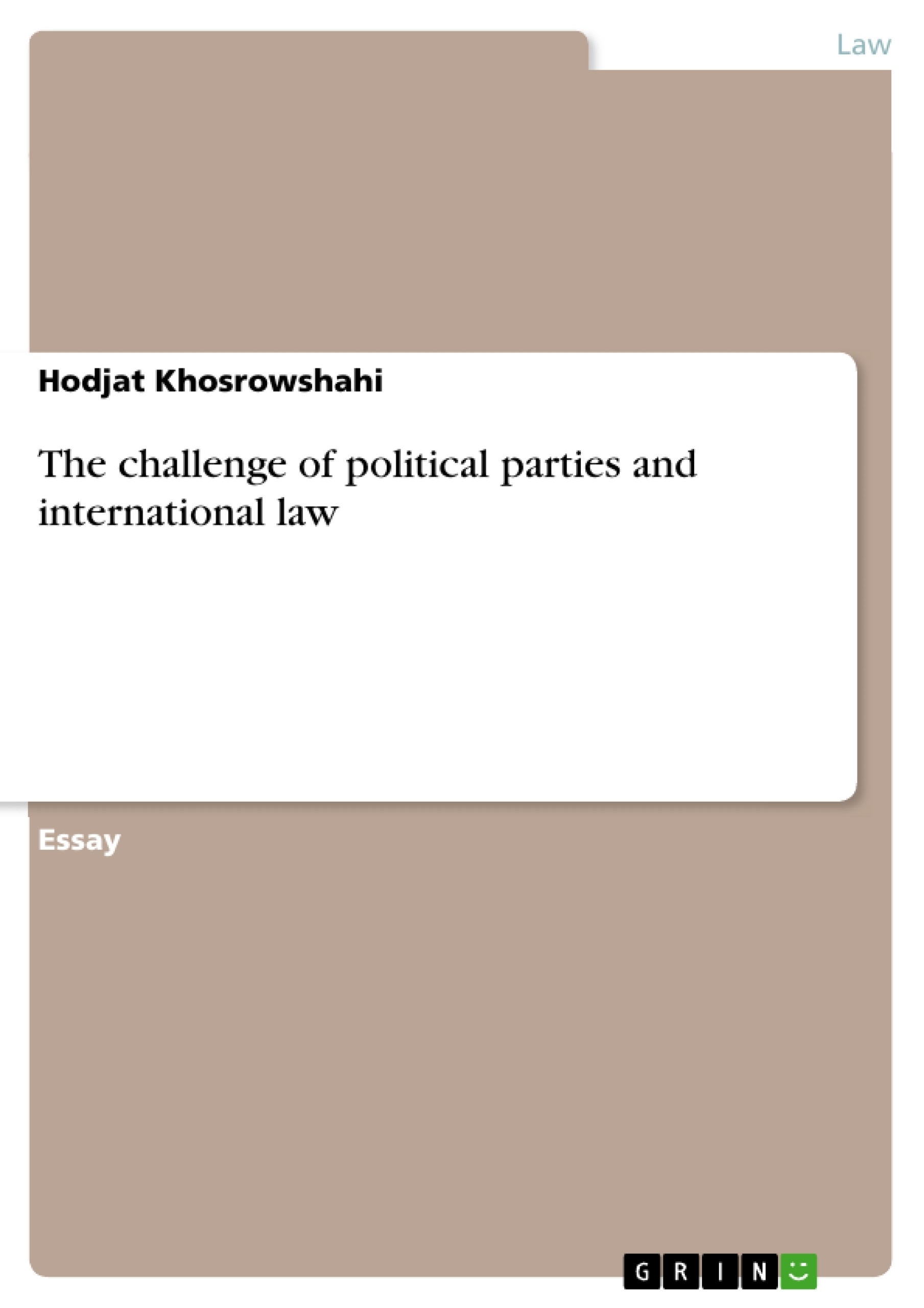Over the years, the law of international law has undergone major changes that have helped this discipline adapt itself to the requirements of the international day and the human and organizational needs, one of which is the shift in the concept of change international actors. Political parties are the result of a group of people who are composed of different perspectives and world views.
One of the most challenging events of contemporary international law is the role of NGOs, often through international organizations, in the process of developing and drafting international law. However, some of these institutions take advantage of the state's ability to act as one of the main players in international law. Although in the past, only charitable and philanthropic institutions such as the Red Cross had such an opportunity, but today, the new political parties leading such structures have an ever-increasing influence on the development of international law.
Inhaltsverzeichnis (Table of Contents)
- Introduction
- Section 1
- A. Parties and the international community
- B. Contributing to the creation of international procedures
- C. The role of political parties in the new system of international law
- D. Cooperation with international organizations
- E. The role of political parties in entering international law by governments
Zielsetzung und Themenschwerpunkte (Objectives and Key Themes)
This work explores the evolving role of political parties in the field of international law. It examines how parties, as influential actors within their respective countries, can contribute to the development and implementation of international norms and procedures. The text also analyzes the potential benefits of cooperation between political parties and international organizations in promoting democracy and human rights.
- The impact of political parties on the development of international law
- The role of political parties in promoting democracy and human rights
- The potential for cooperation between political parties and international organizations
- The relationship between political parties, government, and international law
- The challenges and opportunities presented by political parties in the globalized world
Zusammenfassung der Kapitel (Chapter Summaries)
The introduction highlights the growing influence of political parties in international law, emphasizing their potential to shape the field through their domestic and international activities.
Section 1 delves into the role of political parties in the international community. It examines the right to form political parties, the influence of parties on international law, and their contribution to creating international procedures. It also discusses the importance of political parties in promoting democracy and combating corruption.
Schlüsselwörter (Keywords)
This text focuses on the intersection of international law, political parties, democracy, and human rights. It examines the influence of political parties on international legal processes, highlighting their potential to shape the development of international law and promote global cooperation.
- Quote paper
- Hodjat Khosrowshahi (Author), 2019, The challenge of political parties and international law, Munich, GRIN Verlag, https://www.grin.com/document/512731



